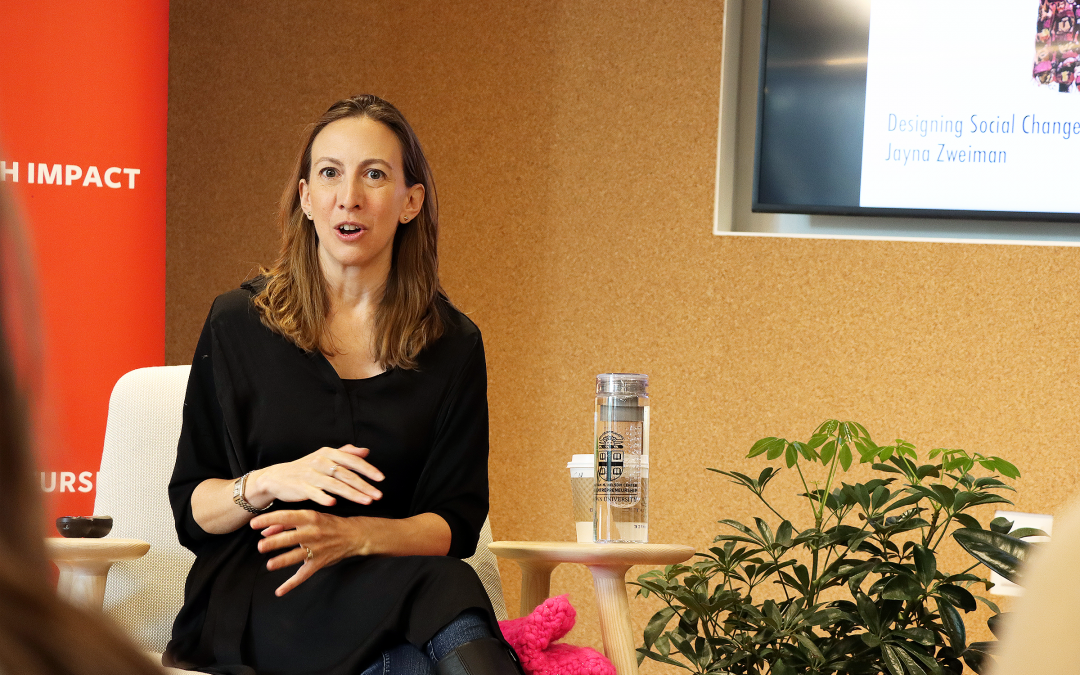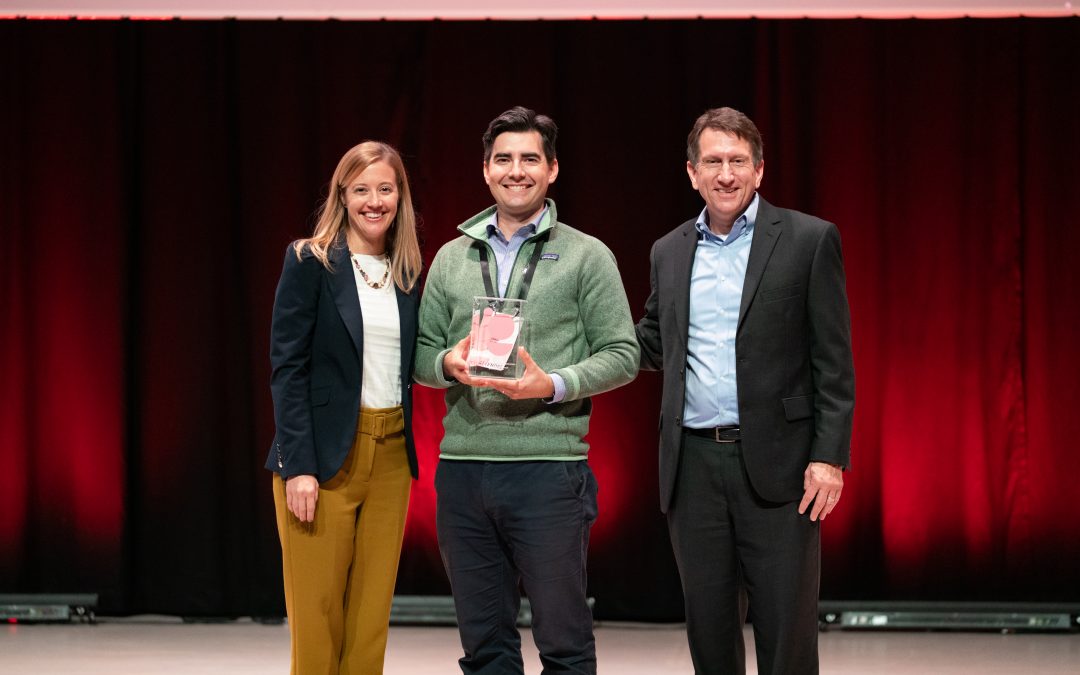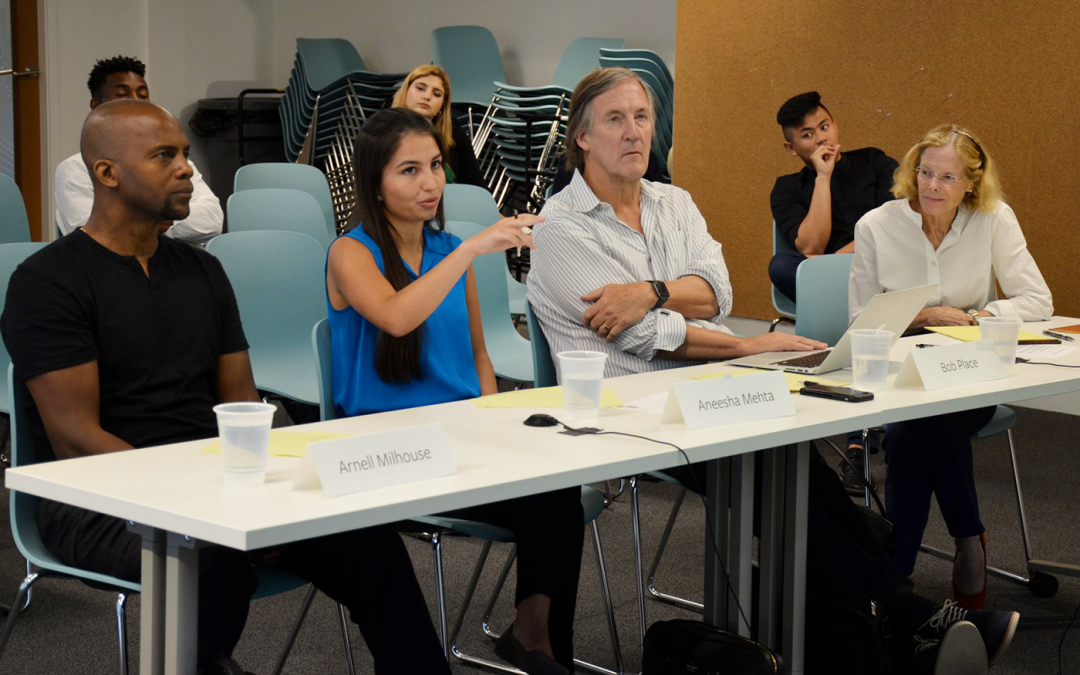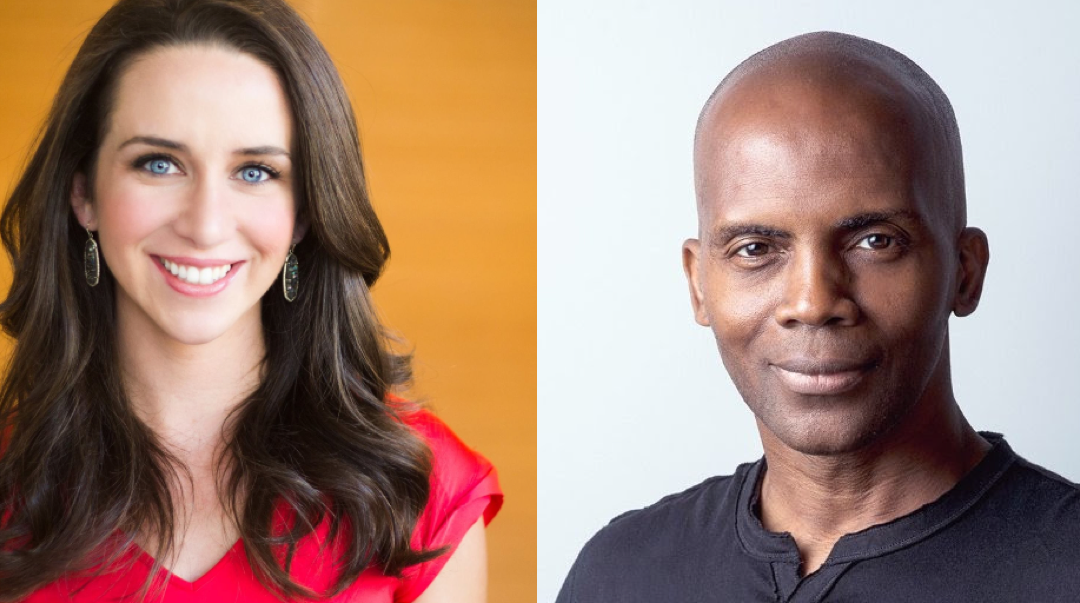
by Tori Gilbert | Dec 11, 2019 | Alumni Stories, Announcements, News from Nelson, Student Experience
Van Wickle Ventures (VWV), Brown’s first student run-venture fund, is excited to announce their first investment in 305 Fitness. 305 Fitness is a dance-cardio fitness brand founded by Sadie Kurzban ‘12, who began teaching the classes out of the OMAC here at Brown. She won the Brown Entrepreneurship Program’s Venture Pitch competition in 2008 and launched 305 in New York with the $25K cash earnings from the competition. Today, 305 Fitness offers over 500 classes a week across 6 studios and 3 pop-ups in major U.S. cities.

Sadie’s story is the perfect example of the kind of founder VWV was created to support – one who follows the entrepreneurship process and had close ties to the Brown community. VWV will be participating in 305’s Series A alongside world-class investors such as Founders Fund, RiverPark VC, and Healthyish Ventures, as well as earlier angels including Tiesto and Kevin Durant.
VWV is also delighted to announce the students comprising the second cohort. Chosen from over one hundred applicants, there were nine that blew the team away with their curiosity, intellect, and creativity. The group includes founders of 3 non-profits in addition to sports tech and hair care ventures, crypto enthusiasts, and a medical school student – and ask them about their gap years! You can learn more about the team here. If you know a Brown- or RISD-affiliated founder, please send them to vwv@brown.edu.

by Jonas Clark | Nov 20, 2019 | Alumni Stories, News from Nelson
Photo courtesy of Dana Kurniawan ’22
“From my own limitations comes inspiration.” Jayna Zweiman ’01 discusses interdisciplinary entrepreneurship through the Pussyhat Project and the Welcome Blanket Project at the Nelson Center’s Oct. 18 event, hosted for Family Weekend.
Jayna Zweiman ’01, co-founder of the Pussyhat Project and founder of the Welcome Blanket, joined Executive Director of the Nelson Center Danny Warshay ’87 in conversation on Oct. 18. The event was the first of two scheduled by the Nelson Center for the University’s annual Family Weekend, welcoming both alums and visiting family members to join our usual audience of students.
Reflecting on her time on College Hill and unique path as a young post-grad, Zweiman described herself as the “quintessential Brown student,” double concentrating in Economics and Visual Arts and even completing every pre-med requirement (save for physics, which she would have to revisit when applying to architecture school down the road). She went on to embark on a stint as a management consultant, attend architecture school at Harvard, do campaign and inauguration work for Bill Clinton’s reelection, work as a game designer at a startup, and eventually work full-time in architecture while also curating exhibitions about women in architecture and serving as a visiting professor of architecture for six months at the Monterrey Center for Higher Learning of Design in Mexico (CEDIM).
However, in 2013, Zweiman sustained a head injury that led to a long recovery process, putting her out of work for years until the start of the Pussyhat Project in 2016, her most recognizable work to date. She described the frustration of watching movements like Black Lives Matter gain traction in that time while being unable to support and participate in activism as fully as she’d like. This feeling, specifically in response to being unable to travel to the Women’s March happening in Washington, D.C. that January, drove Zweiman to begin brainstorming the Pussyhat Project with co-founder Krista Suh, whom she’d grown closer to through a knitting and crocheting group — a “healing modality” for Zweiman during her recovery.
Zweiman had two goals for the initiative: to create a large visual impact (greatly inspired by the 1987 AIDS Quilt, which was also displayed at the National Mall in D.C.) and to create an impactful distribution pattern where people could easily participate in the March despite barriers to access. It granted agency to those who might feel unable to contribute for a myriad of reasons, said Zweiman. The Pussyhat Project became a viral success, uniting people through social media and partnering with 175 local yarn stores across the country. The total duration of the project from launch to the Women’s March was 59 days.
Despite the virality of the initiative, Zweiman credits the project’s success with years of experience and thoughtful consideration, reflective of her interdisciplinary approach fostered at Brown. “The Pussyhat Project happened very, very fast, but I had been working on projects for a really long time,” Zweiman emphasized. “Even though this looks like some overnight boom … there had been years of testing different things.”
She discussed elements of the project she’d actually tinkered with across many roles and disciplines. The concept of knitting a hat and passing it on with a personal note to a stranger attending the March developed with the same approach Zweiman took to analyzing how text in art exhibitions becomes meaningful to viewers. Her time in consulting aided her consideration of distribution patterns. Above all, core concepts of architecture — “building something out of nothing” — aided Zweiman throughout the entrepreneurial process: How would the Pussyhat Project serve as an accessible point of activism for the Women’s March? Like architectural conceptions of extended time and space, the individual’s experience was not limited to the March: “It was all the time and space leading up to the March.”
As for what came after the Pussyhat Project, Zweiman once again found herself called to a creative, social entrepreneurial venture, in response to an urgent political climate. In 2017, she began the Welcome Blanket Project based on the proposed 2,000-mile-long wall along the Mexico/U.S. border. The distance of the proposed border wall was reimagined as 2,000 miles of yarn used to make individual “welcome blankets” for new refugees. Makers were also invited to share their own immigration, migration, and/or relocation story, “because we all have one.” The Welcome Blanket continues to thrive, moving well past 2,000 miles of yarn, as well as limitations Zweiman observed with the Pussyhat Project and has accounted for and integrated into recent work.
“Not all pussies are pink,” remarked Zweiman, speaking frankly of critiques of the Pussyhat later factored into Welcome Blanket development. “And not all women have pussies.” Furthermore, Zweiman characterized Welcome Blanket not as a single reactive moment, but potentially a “new American tradition,” laying the groundwork for a more pluralistic society.
During the Q&A portion of the event, two guests’ remarks did well to summarize what exactly makes Zweiman’s practice of entrepreneurship infused with artistry and social good so unique to witness. “I’m excited to hear about entrepreneurship that’s not an app,” said a visiting family guest from San Francisco, while a parent stated, “Everything Brown does seems more empathetic.”

by Jonas Clark | Oct 25, 2019 | Announcements, News from Nelson
The Nelson Center for Entrepreneurship received the award for Outstanding Emerging Entrepreneurship Center on Sept. 28, 2019, at the annual conference for The Global Consortium of Entrepreneurship Centers.
The Global Consortium of Entrepreneurship Centers is a “global conference gathering the world’s leading minds in entrepreneurship,” its membership comprising over 225 university-based entrepreneurship centers. This year’s GCEC conference was hosted by the Stockholm School of Entrepreneurship from Sept. 26-28 in Stockholm, Sweden. Over 300 representatives attended from institutions such as Harvard University, Yale University, and the Massachusetts Institute of Technology, according to Associate Director of the Nelson Center Jonas Clark, who represented the Center at this year’s conference.
GCEC recognizes top university programs in entrepreneurship across eight categories, including Outstanding Emerging Entrepreneurship Center, which honors an entrepreneurship center that has been active for under five years. Centers self-nominate during a thorough application process and go through a selection committee of past winners. The Nelson Center was chosen for the award based on outstanding performance of selection criteria, including “campus and community engagement, [a] program portfolio, and metrics to date.”
Clark accepted the award on behalf of the Nelson Center in Stockholm on the last day of the conference. “The scale and scope of entrepreneurship education being taught around the world was much larger and more significant than I anticipated,” commented Clark. “To be a part of that group and to be specifically recognized for all of our hard work during the Nelson Center’s first three years was particularly gratifying. I wouldn’t have thought it possible, but I came back even more convinced that we have something special here at Brown, and I’m more energized than ever to take our efforts to the next level.”

by Jonas Clark | Aug 15, 2019 | Breakthrough Lab, News from Nelson, Student Experience
One panel of Bear’s Lair judges. Pictured L to R: Arnell Milhouse, Aneesha Mehta ’14, Bob Place ’75, Marcia Hooper ’77
Breakthrough Lab, the Nelson Center for Entrepreneurship’s eight-week accelerator for student ventures, concluded July 26 with Bear’s Lair, a pitch event similar to Shark Tank. Fourteen ventures presented to a revolving panel of four judges, receiving critical feedback and an “in or out” vote.
B-Lab 2019
The B-Lab cohort of summer 2019 includes a total of thirty students and graduates from Brown and RISD, as well as institutions like UPenn and MIT. Academic disciplines span the breadth of the University’s offerings, and the ventures’ sector spaces display a similar diversity, running the gamut from food and beverage to surgical devices to mental health awareness. (Contact information for our students can be found here.)
Their eight weeks of preparation leading up to Bear’s Lair comprised workshops and presentations from industry professionals on topics like venture financing, consumer marketing, early-stage team building, and customer acquisition; office hours with Nelson Center staff and guest advisors; ample time for working on their ventures in dedicated workspaces in our new building; and weekly sessions on crafting and delivering the elevator pitch.
“Bear’s Lair was a test of everything we had learned up to that point,” commented Quentin Altemose MS’20, co-founder of Quark Labs. “It taught us that while we have made substantial progress, there is always something to learn.” Karina Bao ’22, co-founder of Lila, echoed this sentiment: “It really felt like the culmination of our whole summers, where we could apply what we learned about public speaking, market sizing, patents, teams, fundraising, and marketing to summarize our progress at B-Lab.”

Altemose and Khobi Williamson MS’20 pitch Quark Labs, a venture aiming to produce lab-grown, sustainable leather.

Victoria Yin ’22 and Bao pitch Lila, a superfood brand aiming to popularize Goji berries in food and beverage.
Bear’s Lair
The first panel of judges included Charlie Kroll ’01, co-founder and president of Ellevest; Karina Wood, executive director of the Goldman Sachs 10,000 Small Businesses Program at the Community College of Rhode Island; Thorne Sparkman, managing director of the Slater Technology Fund; and Paulash Mohsen ’95, chief business officer at Yumanity Therapeutics.
The second panel included Bob Place ’75, managing director of the Clean Energy Venture Group; Marcia Hooper ’77, senior advisor at Bowside Capital; Aneesha Mehta ’14, principal at Bain Capital; and Arnell Milhouse, co-founder and CEO of CareerDevs Computer Science Academy and one of the Nelson Center’s incoming Entrepreneurs in Residence.
During feedback rounds, the judges offered help in forming influential connections and searching for investors, as well as delivered some high praise for the ventures’ early-stage growth. “The most important aspect of any startup is the team,” commented Milhouse, “and the primordial mix of interdisciplinary academic thought-leaders within the B-Lab teams is powerful.”

Julia Lemle, RISD MA’19 pitches Grand, a venture that creates elegant products for the elderly. One judge deemed her mission and eye for user design “Jobsian.”
“Presenting in front of the Bears was both fulfilling because it validated all the hard work we had been putting into [our venture] the last two months and informative because of the wonderful feedback and advice we were able to receive in that short 10-minute window,” said Megan Molina, RISD ’19, co-founder of BASA. “It was a positive experience and one I am excited to repeat at the showcase in September!”
The cohort will return to the Nelson Center on September 25 for the B-Lab Showcase event open to the public.

Fernanda Bolaños, PhD’19.5 and Molina pitch BASA, a venture that designs STEAM curricula for underprivileged students.

ARMS: Bella Roberts ’20 (Not pictured: Beth Pollard ’21)

EmboNet: Gian Ignacio ’18 MD ’22 (Not pictured: Emily Holtzman, RISD ’18)

Intus Care: Samuel Prado ’21 and Robbie Felton ’21 (Not pictured: Teo Tsivranidis ’20)

La Pâte: Lucas Fried ’21 (Not pictured: Ian Chiquier ’21)

Mobile-Med Data Solutions: Sai Kaushik Yeturu ’21 (Not pictured: Mayank Mishra, University of Pennsylvania ’21)

Omena: Francesca Raoelison ’22

Pillar: Oscar Newman ’21, John Bitar ’21, Ben Gershuny 21

Primitive Labs: Noa Machover ’19.5 and Viirj Kan MA’17

ResusciTech: Abigail Kohler ’20 and Greg Fine ’20

SelectEd: Amy Wang MA’19 (Not pictured: Jessica Wang ’22 and Santiago Ibañez, MIT Sloan ’13)
by Sheila Haggerty | Jul 12, 2019 | News from Nelson, Research at Nelson
On June 26, 2019, Prof. Banu Ozkazanc-Pan was invited to testify before the U.S. Senate Committee on Small Business and Entrepreneurship, chaired by Senator Marco Rubio. The hearing focused on the reauthorization of the Small Business Act, which includes the Small Business Investment Company (SBIC) program, where Prof. Ozkazanc-Pan contributed her expertise on women and minority investors and entrepreneurs. Her testimony focused on the ways the program can be restructured to provide on-ramps for more women and minority fund managers, as well as ways that such funds can support women- and minority-led ventures. Watch a recording of her testimony (See her present at 02:12). You can also read more about the hearing here.

In addition to this accomplishment, Prof. Ozkazanc-Pan and her colleague Prof. Susan Clark Muntean of the University of North Carolina, Asheville have recently signed a book contract with Cambridge University Press. Their new book will focus on entrepreneurial ecosystems through a gender perspective and examine the socio-cultural, organizational, and institutional structures that can potentially limit opportunities for women-led businesses. The book will provide policy makers ideas for building ecosystems that can foster inclusive economic development at a time when income inequality is on the rise in the United States. It will be available in 2020 but her recent book, Transnational Migration and the New Subjects of Work: Transmigrants, Hybrids and Cosmopolitans will be available September of this year from Bristol University Press.

by Sheila Haggerty | May 29, 2019 | Announcements, News from Nelson
We are thrilled to announce that Laura Thompson ‘09 and Arnell Milhouse will be joining the Nelson Center as Entrepreneurs in Residence for the upcoming 2019-2020 academic year. Both Laura and Arnell have been long-standing supporters of the Nelson Center, helping empower the next generation of entrepreneurs. As EIRs they will now have the ability to work with aspiring entrepreneurs in an even more robust way, helping them launch ideas and navigate the startup ecosystem on campus. Continue reading to learn more about next year’s EIRs.

From Runa Tea to Google X
Laura is certainly no stranger to entrepreneurship at Brown. Her own journey began in Danny Warshay’s class ENGN 1010: The Entrepreneurial Process, where she worked on the original business plan for Runa Tea. She then went on to Google where she started as an Associate Product Marketing Manager and rose through the ranks to become a Product Manager for the Google X “moonshot factory”. She worked on secret, unreleased Google X products that leveraged breakthrough technology aimed at changing the lives of at least 1 billion people over the next 10 years. She helped launch projects including the smart contact lens and delivery drones. In addition to her work at Google X she delivered 100+ speeches, including a talk featuring Marc Andreessen and Sheryl Sandberg. You can learn more about Laura’s career through her Google X talk here and a feature of her in Forbes and her blog in Medium. Laura is now an advisor at Project Wayfinder and is pursuing her own entrepreneurial endeavors.

‘Silicon Rhode’ and a passion for Computer Science
Arnell is a Providence local and graduate of Johnson and Wales University, where he discovered a passion for computer science. In 2015, he brought together his love of education and innovation by founding IntraCity Geeks, a K-12 STEM education non-profit organization. He is also CEO and co-founder of CareerDevs Computer Science University, which teaches adolescents and adults computer science and entrepreneurship skills, which enables them to find 21st-century skills-based employment. Over the past few years many of his students have also collaborated with teams here at the Nelson Center. Arnell was a 2017 TEDx Speaker, gave a talk at Google, received a 2018 American Innovation Award, co-founded HackRI, and coined the term ‘Silicon Rhode’.
Over the course of the semester, Laura and Arnell will be working with aspiring entrepreneurs and offering mentorship and support. We couldn’t be more excited to have them as part of the Nelson Center team – stay tuned for more information about their availability and office hours in the fall.

Thank you to Jessica Kim ‘00, our inaugural Entrepreneur in Residence
On behalf of the Nelson Center and the entrepreneurial community at Brown we are so grateful for the time and energy Jessica has put forth this past year as our inaugural Entrepreneur in Residence. Jessica has opened the 2018 B-Lab cohort with an inspiring workshop and lecture, keynoted the 2018 Startup@Brown conference (along with Arnell!) and held office hours throughout the year with dozens of students. She was a judge for the first ever Brown Venture Prize pitch competition and the 2018 WE@Brown Incubator. This past spring her efforts were recognized when she received the 2019 Barrett Hazeltine Mentoring in Entrepreneurship Award along with Kris Brown ‘89.
Throughout the year, students have gushed over her ability to empower them to take the path less traveled and to turn their ideas into a reality. Her kindness and contagious enthusiasm has been a tremendous resource to the entrepreneurial community and we are so grateful to work with an entrepreneur like Jessica. In fact, don’t just take it from us – this is what one of our students, who is a co-leader of the Brown Hack Health conference and participated in our highly competitive International Synapse trip to London, had to say about Jessica:
While I was sitting in the audience at Startup@Brown, I realized that I was going about the process of entrepreneurship a bit backwards. While I listened to Jessica Kim share stories about her ventures in baking, parenting, and healthcare, I realized how much emphasis she placed on helping people solve specific problems, which meant that the backstory had to come first, and the idea had to follow.
Not only did she help me grasp the idea of bottom-up research for the first time, she also showed me the importance of asking questions and helped me realize how many more resources are out there if I am brave enough to ask and persistent enough to learn. – Renny Ma ‘20
Although Jessica is stepping down as the inaugural EIR and passing the baton to Laura and Arnell, we promise we will continue to bring Jessica back to campus. Stay tuned for more updates about Jessica and her latest startup, Ianacare.























